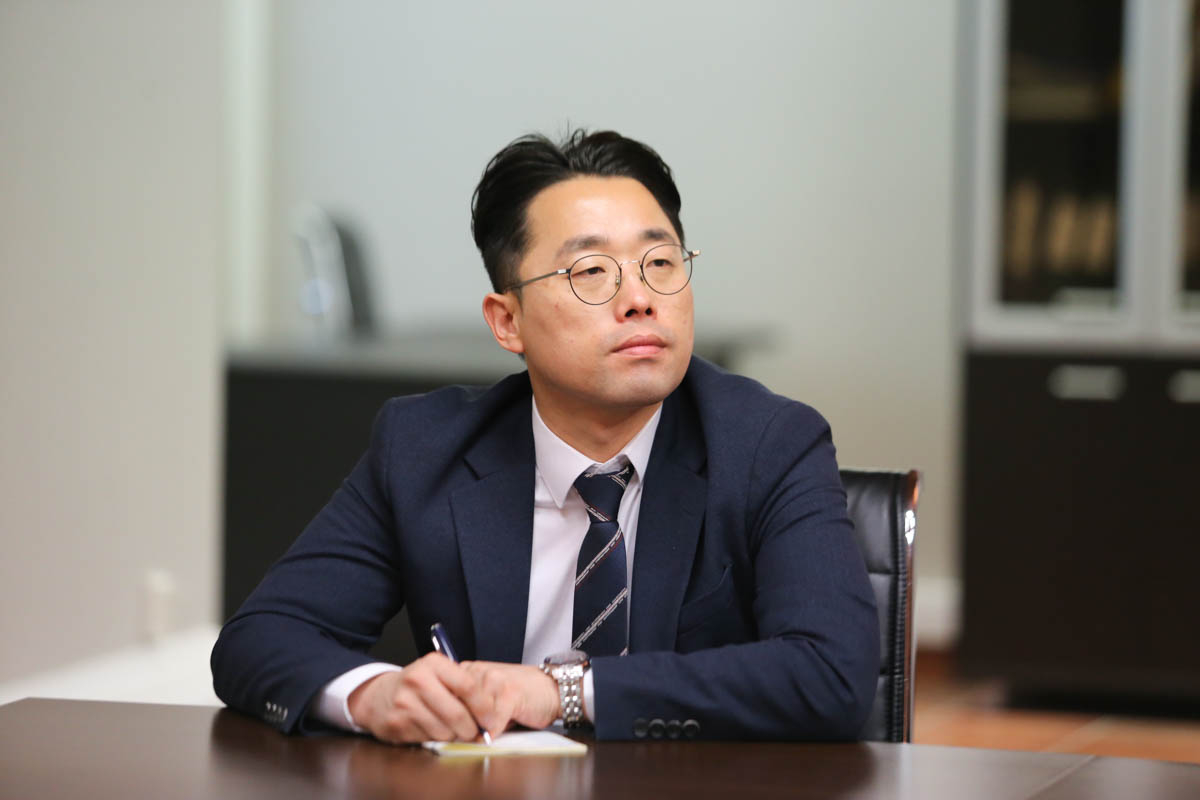The Chancellor of the Korea National Diplomatic Academy Cho Sei-Young: ‘A historic opportunity has opened up on the Korean Peninsula’

The Chancellor of the Korea National Diplomatic Academy Cho Sei-Young has delivered a public lecture at St Petersburg University. He told the audience about the main directions of the foreign policy of the Republic of Korea (South Korea), and answered the follow-up questions.
Cho Sei-Young began his lecture with a recapitulation of the history of Korea in the 20th century. He explained why the country’s partition is still a burning issue for the Korean Peninsula residents. Modern Korean history cannot be called unequivocally dark, even though the Korean War did undermine the economy of South Korea. During the last few decades, it has managed to come a long way. From being one of the poorest countries, it is now the 11th largest economy in the world. Nevertheless, the consequences of the conflict, which threaten the well-being of the people living in the region, can still be observed on the peninsula. North and South Korea are still divided by the demilitarised zone, and the final peaceful settlement of their military conflict has not yet been achieved. Moreover, after North Korea (the Democratic People’s Republic of Korea) announced its intent to pursue a nuclear weapons programme, the Korean Peninsula acquired the status of the most unstable region in Northeast Asia.
For almost 70 years, North and South Korea have managed to avoid large-scale military clashes. Therefore, the current political situation on the peninsula is believed to be a reflection of the balance of power. However, this cannot guarantee peace in the long run. According to the speaker, North and South Korea ought to shift to a more stable equilibrium. In order to achieve this, they need to conclude a peace treaty. The first and most important step towards peace on the peninsula will be the denuclearisation of North Korea. During the first Inter-Korean Summit in April 2018, the North Korean leader expressed commitment to nuclear disarmament and stressed that, for North Korea, security is a high priority. ‘North Korea has great potential for economic growth and is ready to focus on economic development. It is time for our countries to work out an integrated security system, which requires balancing the interests of all concerned parties. This includes Japan, China, Russia, and the United States. The foundations for this system were laid in 2005 in the Six-Party Talks agreement,’ explained Mr Cho Sei-Young. ‘The Six-Party Joint Statement said that along with North Korea’s abandoning all nuclear weapons, the most important goals include: establishing a permanent peace regime on the Korean Peninsula and regional security in Northeast Asia. Also, developing a comprehensive system of security guarantees is viewed as an incentive for the denuclearisation of North Korea.’
Throughout their history, the relations between North and South Korea have had ups, downs and major crises. But since the 2018 PyeongChang Winter Olympics, the situation has become significantly warmer. That is what enabled the inter-Korean summit in 2018, which became an unprecedented event in the history of inter-Korean relations.
The Korean people are no longer willing to accept the 70-year division of Korea as a normal state of affairs.
Cho Sei-young, Chancellor of the Korea National Diplomatic Academy
‘Today the window of opportunity for Korean history is wide open, and no one knows when such an occasion may arise again. If we fail to bring peace and prosperity to the Korean Peninsula, our failure will be long remembered. Our descendants will hold us responsible for failure to act in the historic 2019,’ said Cho Sei-Young. ‘There are many examples in the history of mankind when a mission that appeared impossible at the start, was completed successfully. Thus, few believed that Mao Zedong could defeat Chiang Kai-shek and create a communist state in China, or that Vietnam would be able to win the war against the United States. Similarly, few believed that South Korea – one of the world’s poorest countries – would become one of the leading economic powers after the Korean War. For these reasons, we will strive to unite the two Koreas, eliminate the consequences of the Cold War on the Korean Peninsula, and create a new order of peace and prosperity.
Cho Sei-Young emphasised that South Korea intends to play an active role in resolving these issues. He also noted that Russia’s effort is vital for achieving a lasting peace on the Korean Peninsula. The Russian Federation is a permanent member of the UN Security Council and has been supporting multilateral negotiations on establishing a new peace and security system in Northeast Asia. Today, Russia and South Korea are strengthening their bilateral relations, which have reached the level of strategic partnership. Last June, President Moon Jae-in and President Vladimir Putin signed an agreement on further expanding cooperation between the Russia and South Korea in nine priority areas. As a result, the ‘Nine Bridges’ initiative is currently being successfully implemented.
In conclusion, Mr Cho Sei-Young reminded that the year 2020 would mark the 30th anniversary of the establishment of diplomatic relations between the Russian Federation and the Republic of Korea. He also expressed the hope that the anniversary year would give cause for bringing Korean-Russian relations to a higher level, and Russia would become a reliable partner in the historical process of Korean reunification.

